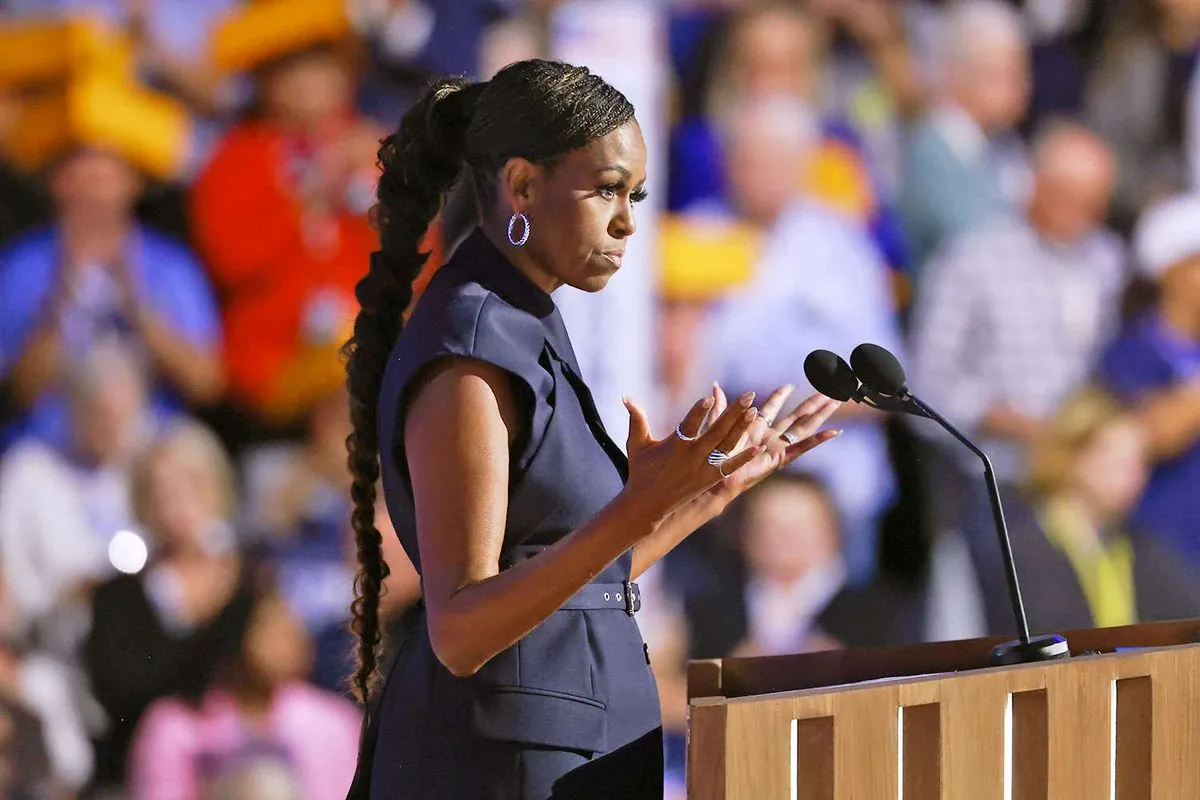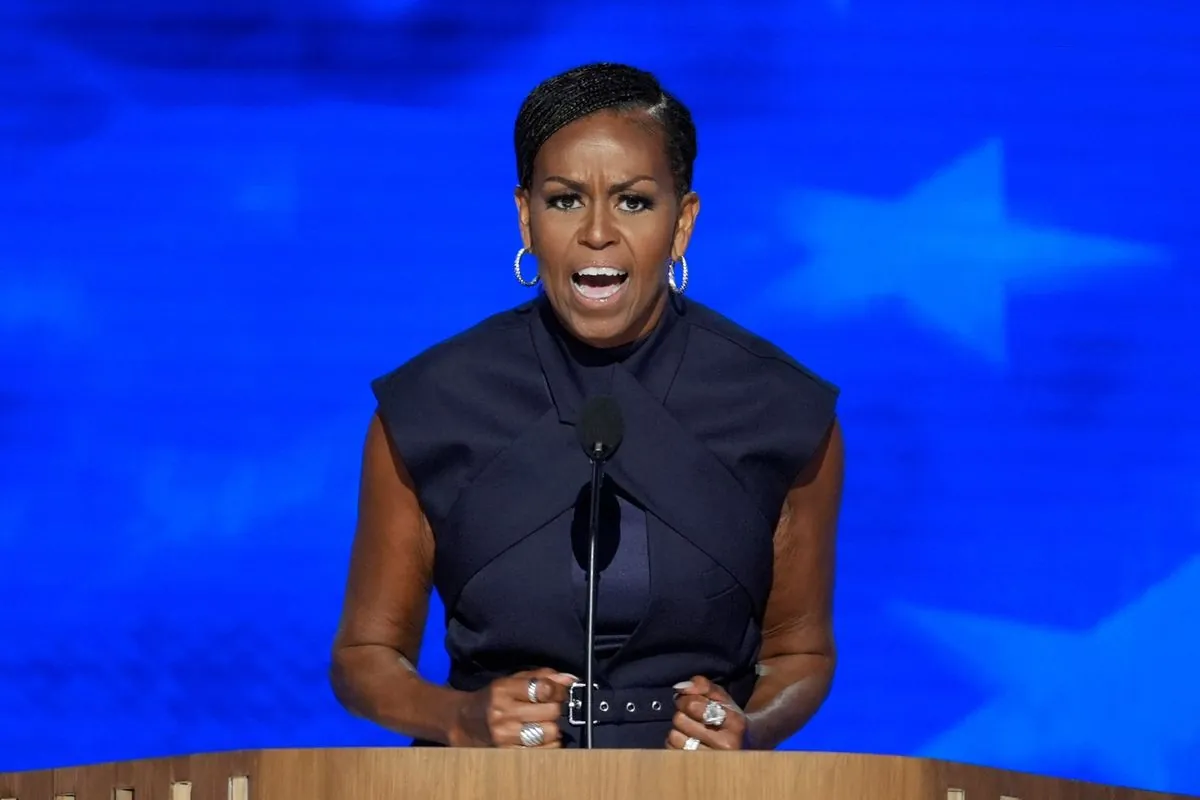Michelle Obama's Powerful Reframing of Wealth and Privilege in America
Michelle Obama's 2024 DNC speech introduces a striking phrase, reshaping the debate on inequality and privilege in America. Her words challenge perceptions of affirmative action and generational wealth.

In a significant shift from her 2016 Democratic National Convention address, Michelle Obama delivered a powerful speech at the 2024 convention, introducing a phrase that could reshape discussions on inequality and privilege in America. The former First Lady's words mark a departure from her previous "When they go low, we go high" approach, reflecting a change in political strategy eight years after Donald Trump's election victory.
Obama's speech, delivered on August 20, 2024, focused on Vice President Kamala Harris and the challenges faced by the majority of Americans who lack the safety net of wealth and privilege. Without naming Trump, she drew a clear contrast between those who benefit from generational wealth and those who must overcome obstacles without such advantages.
The most striking element of Obama's address was her introduction of the phrase "the affirmative action of generational wealth." This concise yet powerful statement reframes the ongoing debate about inequality in the United States and potential solutions.

By linking "affirmative action" with "generational wealth," Obama highlights how inherited economic and social power can function as a form of unearned advantage. This perspective challenges common narratives about affirmative action programs, which are typically associated with efforts to ensure equal access for non-White Americans.
The concept of generational wealth is particularly relevant when considering the historical context of racial discrimination in the United States. Many Americans today have parents or grandparents who lived during the 1950s and 1960s, an era of explicit racial discrimination. This means that current generational wealth often has roots in an economy where systemic racism was prevalent.
Obama's reframing also touches on the ongoing debate about systemic racism in America. While the Black Lives Matter movement, which began in 2013, has increased awareness of systemic issues among some demographics, perspectives on this topic remain divided along partisan lines.
"Republicans are much more likely to indicate that Black Americans have worse economic positions due to lack of motivation."
This division reflects broader disagreements about the nature and extent of racism in contemporary American society. Some view discussions of systemic racism as unfair criticisms of the United States, while others see them as necessary for addressing persistent inequalities.
Obama's phrase "the affirmative action of generational wealth" offers a new lens through which to view these complex issues. By equating inherited advantage with affirmative action, she challenges perceptions of both concepts and invites a reconsideration of how privilege operates in American society.
As the 2024 election approaches, Obama's words may have a lasting impact on political discourse, potentially influencing how Americans think about wealth, privilege, and opportunity in their country. While the effectiveness of this new framing remains to be seen, it represents a significant evolution in the discussion of these critical issues.


































